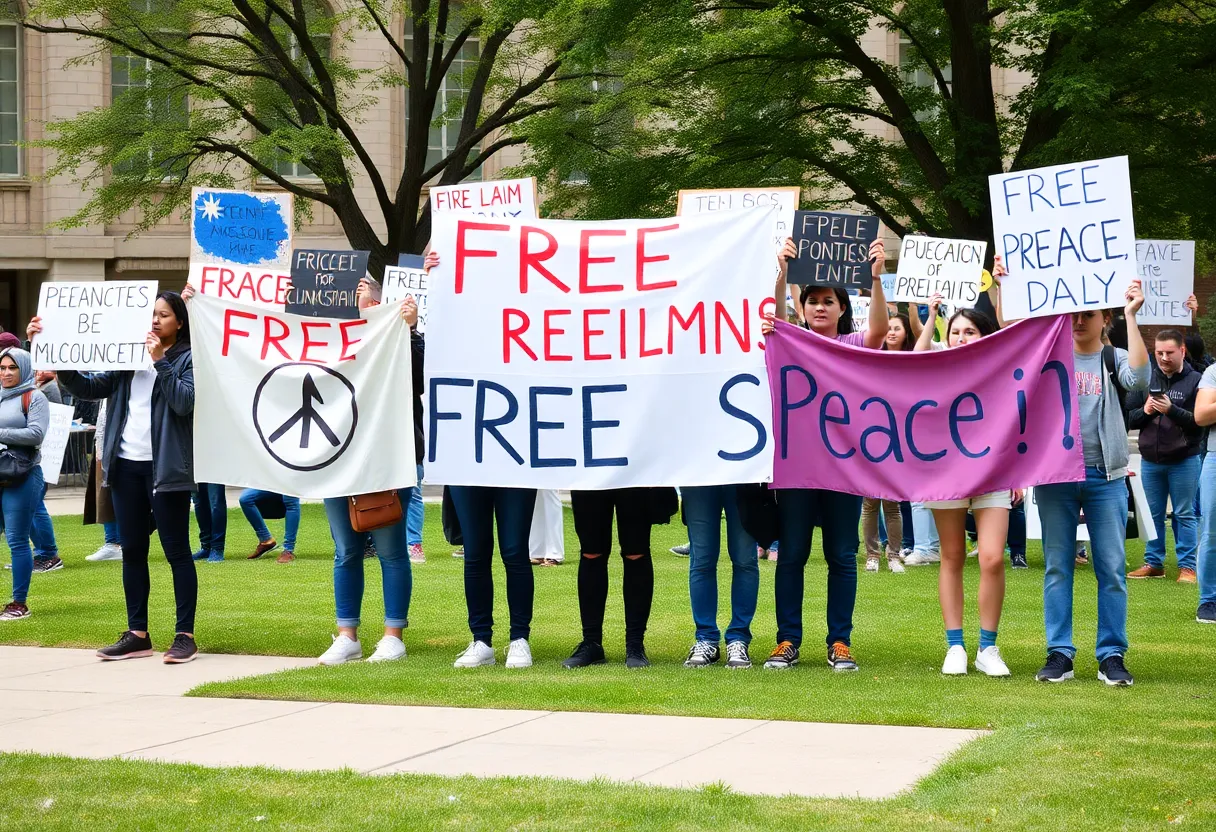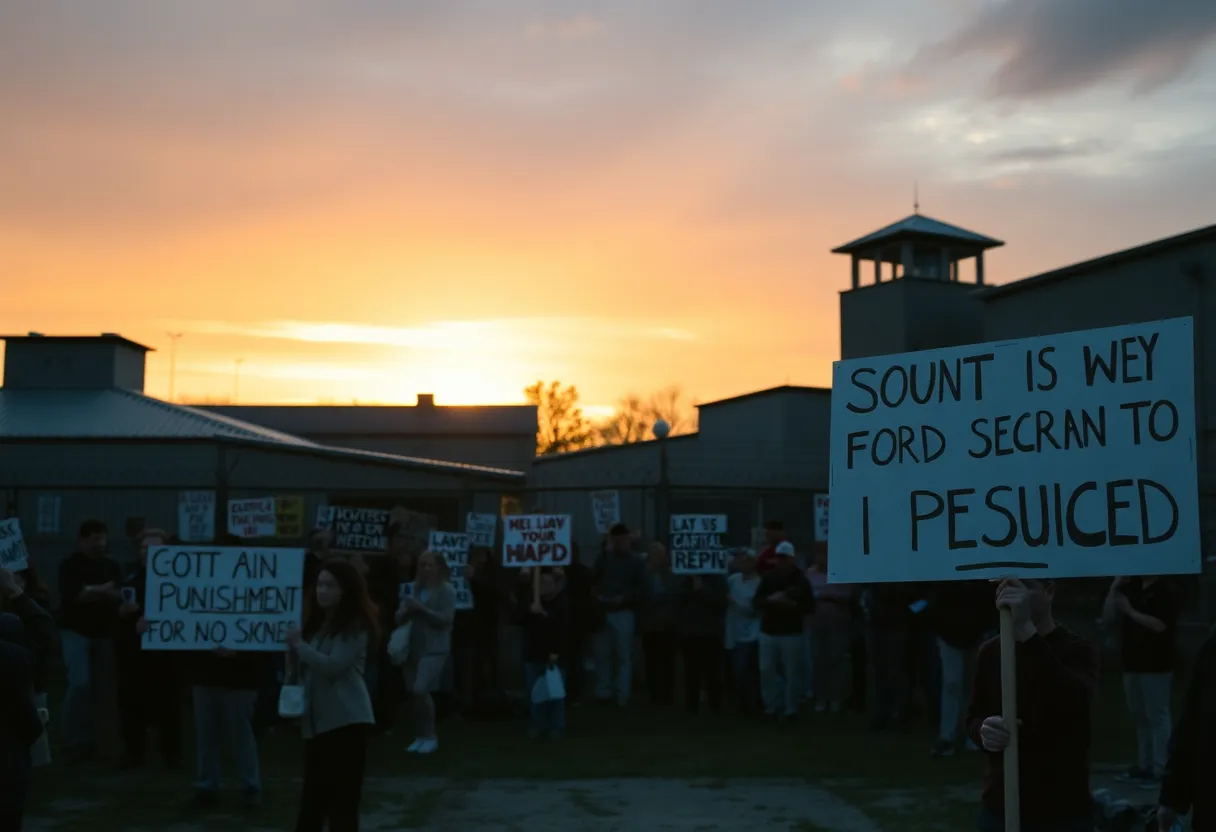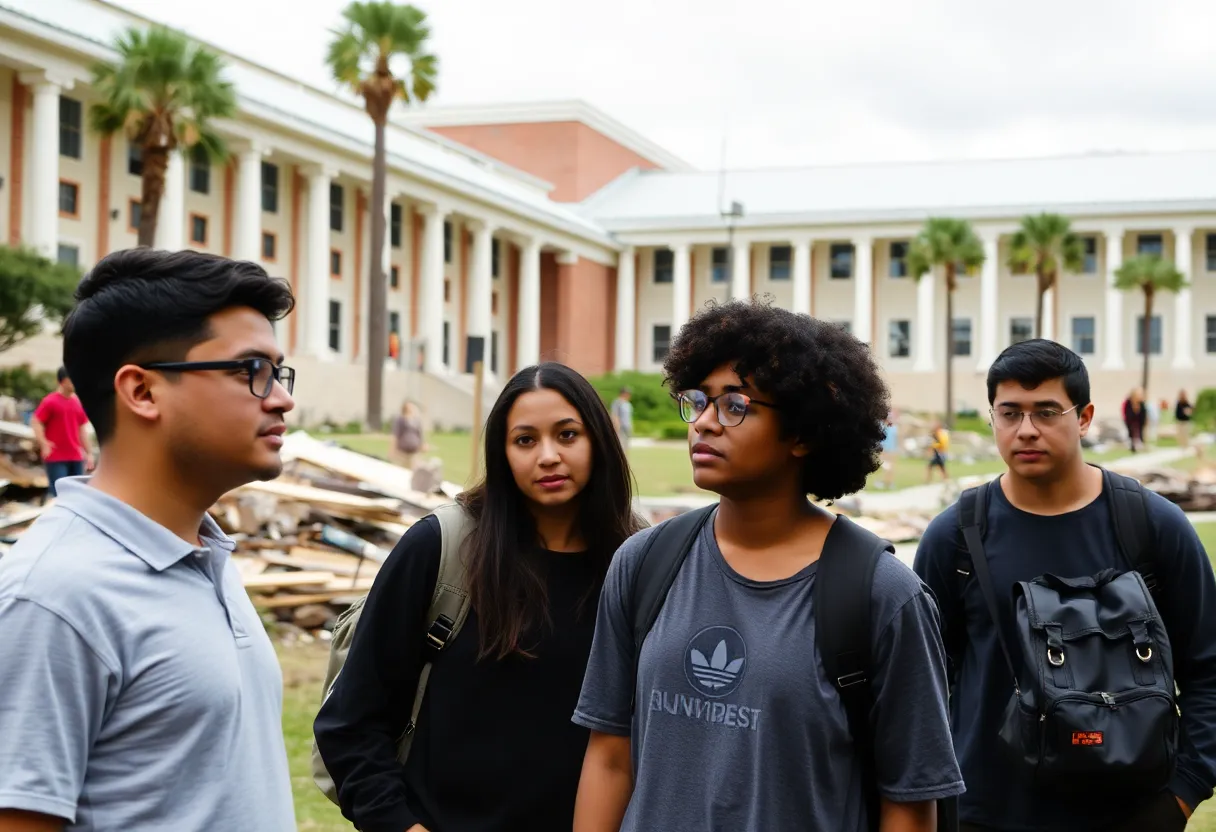News Summary
Mahmoud Khalil, a Columbia University graduate, is facing potential deportation due to his pro-Palestinian activism. A ruling from a judge has raised concerns about free speech rights as the U.S. government claims his beliefs might undermine its foreign policy. Khalil’s legal team argues this infringes on fundamental rights and sets a dangerous precedent for activism on college campuses. With an appeal in process, Khalil’s case highlights the intersection of immigration law and political expression, prompting a national debate on free speech.
Mahmoud Khalil Faces Deportation Over Pro-Palestinian Advocacy
A Columbia University graduate, Mahmoud Khalil, is facing potential deportation after a judge ruled that his activism could pose serious consequences for U.S. foreign policy. Khalil, a legal permanent resident, was put in the spotlight following the argument from the U.S. government, claiming his actions and beliefs could undermine American interests abroad, particularly concerning Palestine.
Details of the Ruling
Assistant Chief Immigration Judge Jamee Comans issued the ruling, which has stirred waves of concern among advocates for free speech. At the center of the debate is a memo from Secretary of State Marco Rubio stating that Khalil is deportable due to his “beliefs, statements, or associations.” However, Khalil’s legal team argues that this is not rooted in any criminal activity and infringes on his fundamental right to free speech.
Concerns from Khalil’s Legal Team
Khalil’s attorneys have expressed alarm, suggesting that the judge’s decision sets a dangerous precedent for other lawful permanent residents involved in pro-Palestinian activism. They contend that the ruling could chill free speech on college campuses, a place where student activism has historically thrived. Khalil himself has claimed that he did not receive fair treatment during the process, feeling that his due process rights were compromised.
Khalil’s Journey and Activism
Previously, Khalil was arrested by federal agents just outside his apartment, where he lived while attending Columbia University. This arrest occurred after a deportation order issued by the Trump administration, which allegedly claimed Khalil’s actions contributed to a hostile environment for Jewish students. Khalil actively participated in protests against Israel’s actions during the war in Gaza last year, and he even served as a negotiator for student protesters demanding accountability from the university.
Legal Actions and Future Steps
With support from his legal team, Khalil plans to appeal the ruling. The judge has granted them until April 23 to submit new motions, indicating that further immigration hearings may follow before a final verdict is reached. His wife, Noor Abdalla, has publicly criticized the ruling, labeling Khalil as a political prisoner, emphasizing that his efforts in advocating for Palestinian rights have placed undue strain on their family life, especially as they await the birth of their child.
The Broader Implications
This ruling raises fundamental questions about the extent to which immigration law can intersect with political speech. Historically, similar immigration policies concerning foreign policy consequences have been rarely invoked, clouding the interpretation and application of such laws. Critics of this ruling view it as part of a broader attack on dissenters and activists, particularly those speaking out on sensitive geopolitical issues.
A National Discussion on Free Speech
The implications of Khalil’s situation have ignited a passionate debate about free speech rights in the United States, especially on college campuses. Experts warn that this case could set a worrying standard for how dissent is treated within the student community. The tension surrounding this case illustrates how intertwined immigration enforcement and political expression have become in recent years, particularly during the Trump administration.
Stay Tuned for Updates
As many eyes remain fixed on this unfolding story, Khalil’s legal team continues working tirelessly in hopes of overturning this ruling. With the upcoming deadlines for submissions, the coming months will no doubt be critical in determining not only Khalil’s future but also the potential impacts on activism and free speech rights across the nation.
Deeper Dive: News & Info About This Topic







